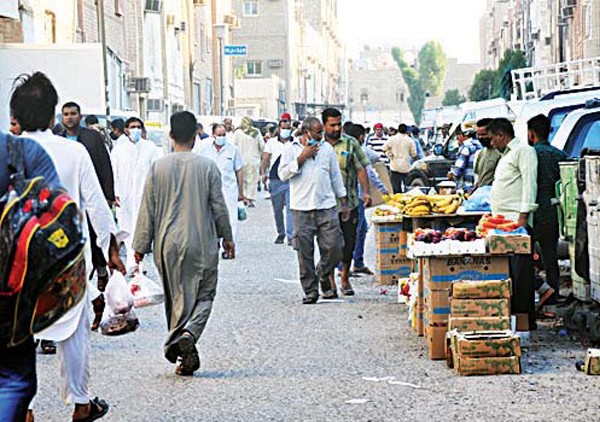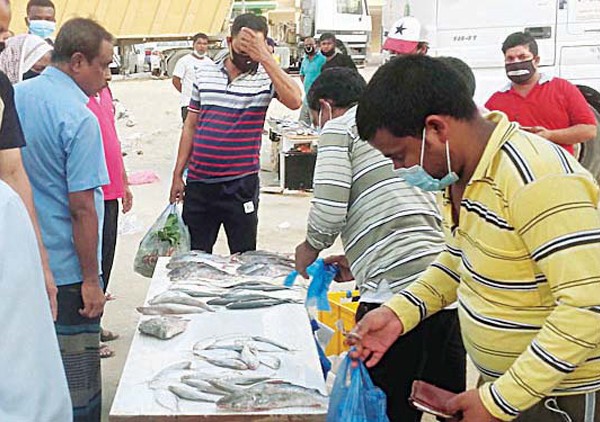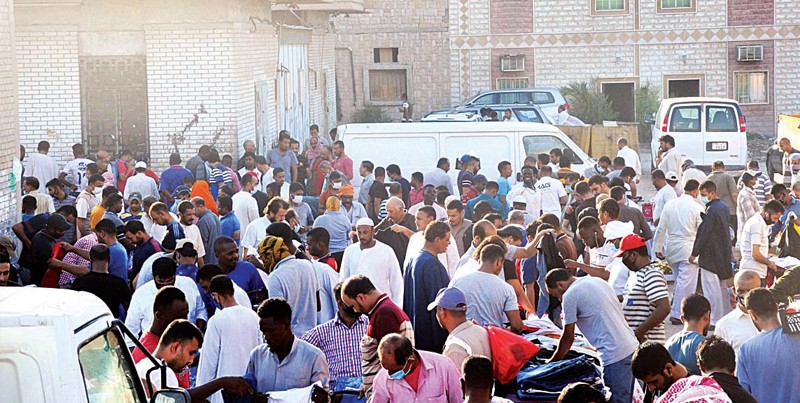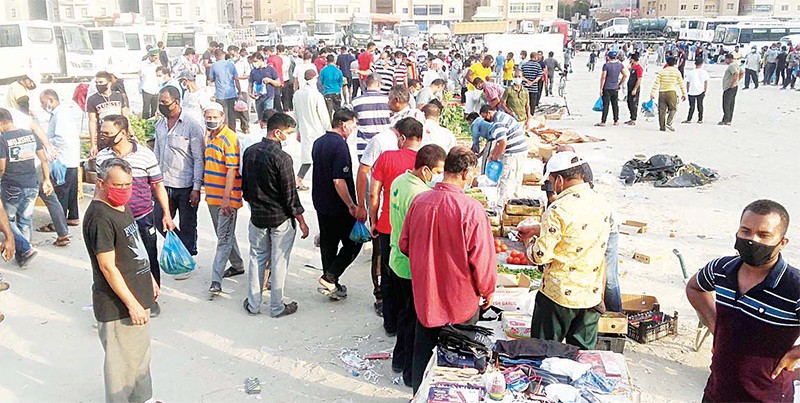25/07/2020
25/07/2020
Fruits, veggies & even subsidized milk powder being sold in markets
KUWAIT CITY, July 25: The supermarket and even the so-called makeshift markets once again have started doing brisk business after the Council of Ministers and the Health Ministry decided to lift the ‘total lockdown’ curtain from all areas except for Farwaniya which is expected to soon join the others, reports Al-Seyassah daily.

The areas which returned to partial normalcy are Khaitan, Jleeb Al-Shuyoukh and Mahboula. The daily monitored these markets where most of those active are Asians, Arabs, and people of unspecified nationalities. They sell vegetables, fruits and food in addition to damaged or goods which are nearing expiry dates and some sell even fish which reportedly costs much less than the fish market in Sharq or Fahaheel Fish Market.

They even sell government subsidized milk powder. While some customers prefer to purchase from the random markets is because they are cheap, while others have expressed their dissatisfaction because these markets cause a lot of inconvenience and pose a risk to health, especially in light of the ‘corona’ crisis because no one adheres to social distancing.

Burdens
Most of the people who sell these items are those who stopped work for several months in line with to make some money to help them to face the burdens of life, and at the same time, large sectors residents living in these areas find these popular markets a safe haven for them in light of the scarcity of financial liquidity as a result of interruption of their business due to the pandemic.
One of the residents who identified himself as Mohamed Ramzi said that he is forced to buy from these random markets because the same products cost much more at reputable centers. As an example he said something which cost 250 fils at the random market, costs about 300 fils at a cooperative society. Mamdouh Zeinhum said he paid 500 fils for two kilos of eggplant while the same product is sold for 400 fils a kilo at a supermarket or cooperative society. He pointed out saying even restaurant owners come to buy eggplant and tomatoes from this random market.

Musa Al-Harbi says that most sellers of subsidized milk are nonnationals, as they buy tins of this milk from Kuwaiti families at much lower price and then sell the same for two and a half dinars in popular markets.
Abdullah Mesbah, explains he was a daily wage worker and after corona virus stopped work, he had no option because he did not find any work during the last period since he resides in Mahboula, so he borrowed a small amount money from a relative and started selling goods at a market


